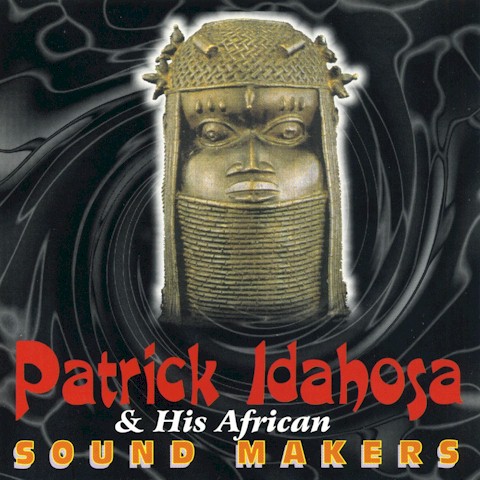
Back in Eighth Grade, my Social Studies class was given one of those typical assignments where we were supposed to pick out some country and write a report about it. Most of the kids picked well-known countries (I chose Austria), but one young lady, Susan Norman, chose the West African nation of Dahomey.
"Dahomey? Are you kidding?" our teacher Mr. Vezie sneered, no doubt thinking that Susan chose this obscure country to get out of doing a lot of work on the project, but she was adamant.
What does this have to do with the subject of today's post? Well, nothing, really, except that in 1975 the Republic of Dahomey changed its name to the Republic of Benin, after the Bight of Benin, which in turn was named after the Benin Empire, a powerful entity that existed from 1440 to 1897 in what is today Nigeria. "Benin" is a Portuguese corruption of "Ubinu," the administrative center of the Empire, which is today called Benin City, capital of Edo State.
 Dahomey's rechristening in 1975 has caused no end of confusion ever since, so to clarify things: Benin City (& hence the historical Benin Empire) is approximately 250 miles east of Porto Novo, capital of the present-day Republic of Benin. The two entities have no historical connection! The map at right shows the sphere of influence of the Benin Empire at the height of its power. To further muddy the waters there was once another "Republic of Benin," which was established by retreating Biafran troops in the early days of the Nigerian civil war (see map below, from John de St. Jorre's Nigerian Civil War, Hodder & Stoughton, 1972, click to enlarge). This historical curiosity was proclaimed at 7 a.m. on September 20, 1967 and collapsed eight hours later!
Dahomey's rechristening in 1975 has caused no end of confusion ever since, so to clarify things: Benin City (& hence the historical Benin Empire) is approximately 250 miles east of Porto Novo, capital of the present-day Republic of Benin. The two entities have no historical connection! The map at right shows the sphere of influence of the Benin Empire at the height of its power. To further muddy the waters there was once another "Republic of Benin," which was established by retreating Biafran troops in the early days of the Nigerian civil war (see map below, from John de St. Jorre's Nigerian Civil War, Hodder & Stoughton, 1972, click to enlarge). This historical curiosity was proclaimed at 7 a.m. on September 20, 1967 and collapsed eight hours later!
The Benin Empire encompassed Ijaws, Igbos, Itsekitris and Urhobos, among other groups, but the Edo people constituted the core of the nation. Even today they are celebrated for their artwork, a sample of which is at the top of this post. Much of this was destroyed when Benin City was captured by the British in 1897, and much of the remainder was dispersed around the world. Today Benin City is renowned as a center of education and culture in Nigeria.
All of this exposition is by way of making up for the fact that I can't tell you a whole lot about today's featured artists. While Victor Uwaifo is justly famed as Benin City's foremost musical exemplar, the area has produced numerous other talents, like Patrick Idahosa, who had a similar sound. I can't say much about him, but among Edo musicians he was probably second only to Uwaifo in popularity during his heyday of the '70s and '80s. In the late '90s, Mossiac Records of New York released a CD compilation (Mossiac MMCD 0302) of his greatest hits, from which the following are taken:
Patrick Idahosa & his African Sound Makers - United Brothers
Patrick Idahosa & his African Sound Makers - Tamoubiyememwsm
Patrick Idahosa & his African Sound Makers - Tamiyaregbe
Patrick Idahosa & his African Sound Makers - United Brothers
Patrick Idahosa & his African Sound Makers - Tamoubiyememwsm
Patrick Idahosa & his African Sound Makers - Tamiyaregbe

The Amunataba Dance Band are similarly obscure to me, but what a fine album Akenzua (Mikii MAK 504, 1978) is! Sweet guitar highlife in the Peacocks mode, and isn't the front cover great?
Amunataba Dance Band - Eronmwon
Amunataba Dance Band - Akenzua

Willy Adamosa Osagiede got in touch with me many years ago, and even sent me a CD of his recent recordings. Like all of the musicians here, he was most popular in the '70s and '80s. He's presently based in the San Francisco Bay Area, and you can access his MySpace page here. Here are some tracks from his 1976 LP Ukpakon (Afrodisia DWAPS 70):
Adamosa Osagiede & his International Band - Amayamwen Nue
Adamosa Osagiede & his International Band - Igho Nogie
Adamosa Osagiede & his International Band - Wa Gha Hio

Osayomore Joseph's Afro-funk sound has recently drawn some notice thanks to his contribution to the recent Soundway compilation Nigeria Special. Here's a song from his 1982 LP Ulele in Transit (Emotan EMOLP 01):
Osayomore Joseph & the Ulele Power Sound - Efewedo

And here's one from another 1982 album Over the Bar. . . I Beg You . . . (Emotan EMOLP 02):
Osayomore Joseph & his Ulele Power Sound - Alele

Winding things down in style with Idemudia Cole's Talents of Benin, whose Talents of Benin Vol. 5 (Shanu Olu SOS 127, 1981) is as wonderful an example of Edo highlife as you'll ever find:
The Talents of Benin - Ovbiokhokho

0 Response to "Benin (The Empire, Not the Country)"
Post a Comment